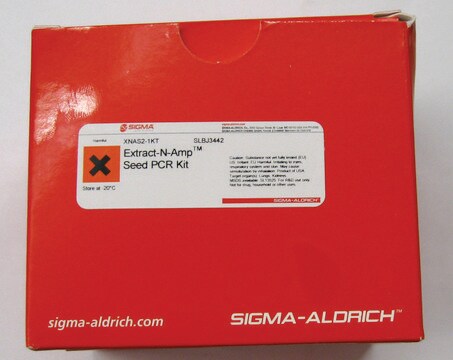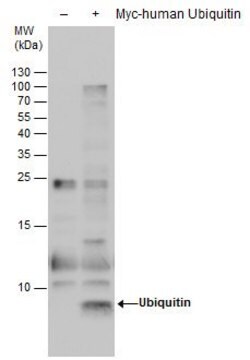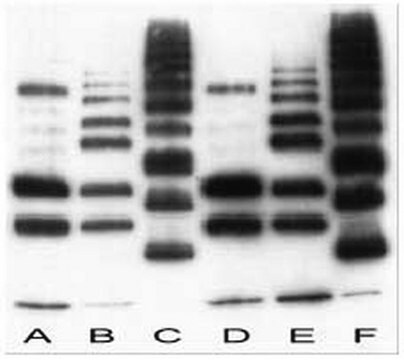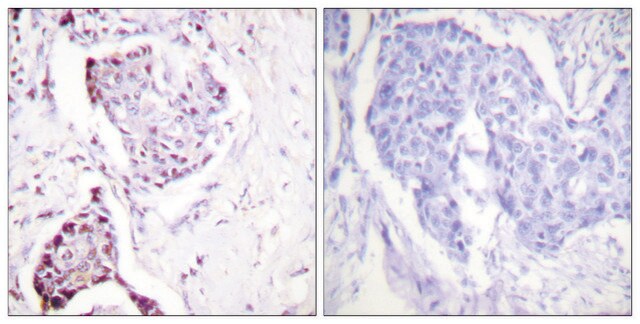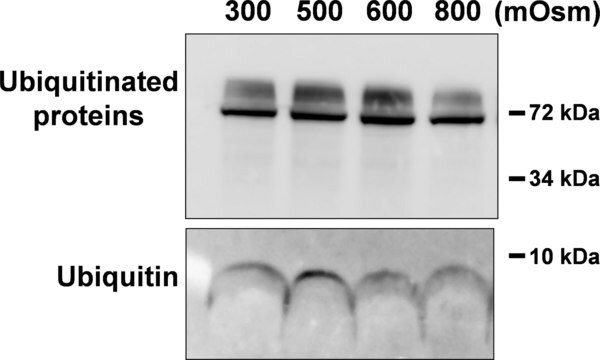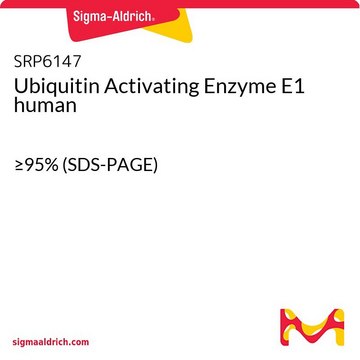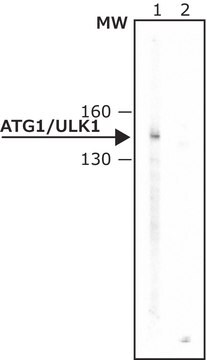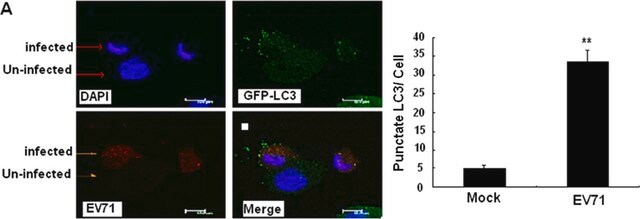U0508
Monoclonal Anti-Ubiquitin antibody produced in mouse
clone 6C1, ascites fluid
About This Item
Productos recomendados
origen biológico
mouse
conjugado
unconjugated
forma del anticuerpo
ascites fluid
tipo de anticuerpo
primary antibodies
clon
6C1, monoclonal
contiene
15 mM sodium azide
reactividad de especies
human, rat, mouse, bovine
técnicas
indirect ELISA: suitable
microarray: suitable
western blot: 1:1,000 using whole cell lysate of human promyelocitic HL60 cells
isotipo
IgG2a
Nº de acceso UniProt
Condiciones de envío
dry ice
temp. de almacenamiento
−20°C
modificación del objetivo postraduccional
unmodified
Información sobre el gen
human ... UBB(7314) , UBC(7316)
mouse ... Ubb(22187) , Ubc(22190)
rat ... Ubb(192255) , Ubc(50522)
Descripción general
Inmunógeno
Aplicación
Western Blotting (1 paper)
Cláusula de descargo de responsabilidad
Not finding the right product?
Try our Herramienta de selección de productos.
Opcional
Código de clase de almacenamiento
10 - Combustible liquids
Punto de inflamabilidad (°F)
Not applicable
Punto de inflamabilidad (°C)
Not applicable
Certificados de análisis (COA)
Busque Certificados de análisis (COA) introduciendo el número de lote del producto. Los números de lote se encuentran en la etiqueta del producto después de las palabras «Lot» o «Batch»
¿Ya tiene este producto?
Encuentre la documentación para los productos que ha comprado recientemente en la Biblioteca de documentos.
Los clientes también vieron
Nuestro equipo de científicos tiene experiencia en todas las áreas de investigación: Ciencias de la vida, Ciencia de los materiales, Síntesis química, Cromatografía, Analítica y muchas otras.
Póngase en contacto con el Servicio técnico

